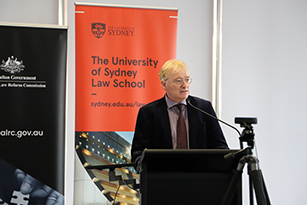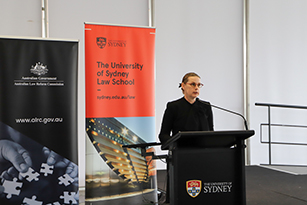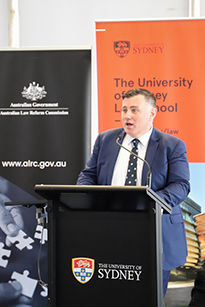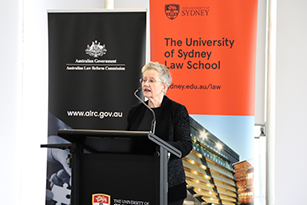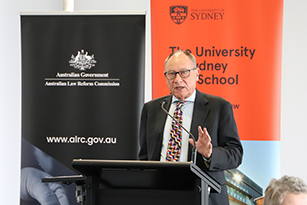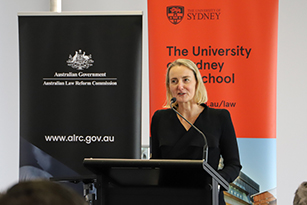31.07.2020
On Monday 27 July 2020 the Australian Law Reform Commission co-hosted with the University of Sydney a webinar with a panel of experts discussing the potential for a future ALRC inquiry into reform of defamation law. Over 350 people viewed the event “live” and hundreds more have registered to view the recording at a later time. The live streaming of the webinar, facilitated by Wolters Kluwer CCH Learning, provided the opportunity for a nationwide, interactive conversation, with questions welcomed on registration and taken during the event.
An initial survey of the audience revealed that most participants felt that social media and other emerging ‘publication’ technologies were the main reason that defamation law requires further reform. Just over a quarter of participants suggested that defamation law is in need of a comprehensive overhaul.
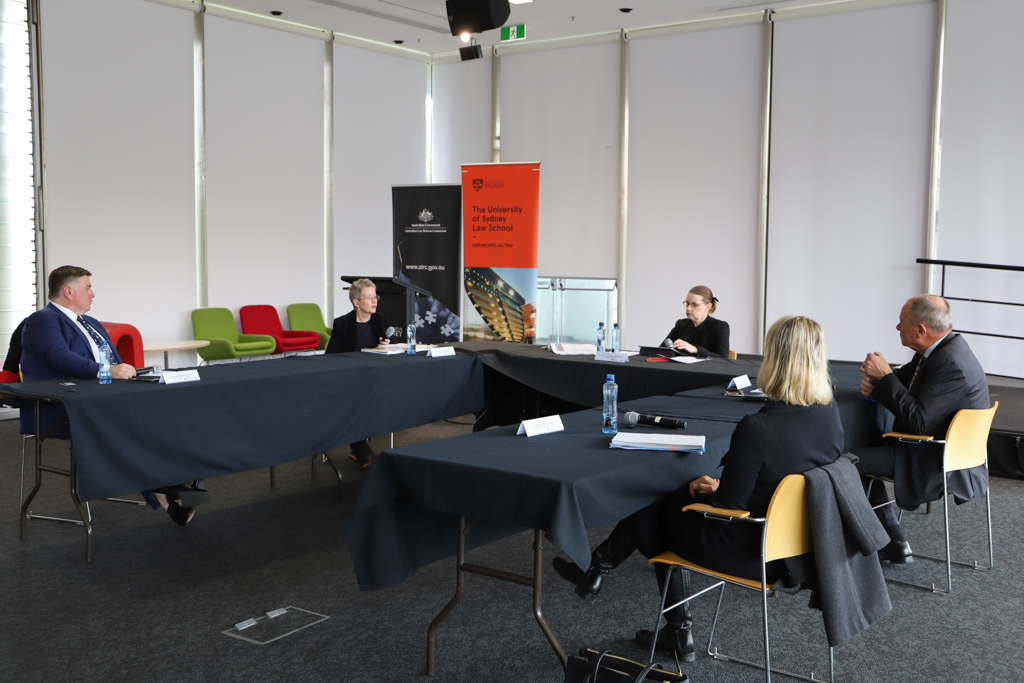
Defamation panel
Professor Simon Bronitt, Dean of Sydney Law School, gave a warm welcome on behalf of the University of Sydney, partially delivered in the local Gadigal language, and acknowledged the importance of updating and reforming the law.
Justice Sarah Derrington, President of the ALRC, emphasised that the event is designed to generate discussion about the need for law reform, and the ALRC does not have set views on how any future inquiry into defamation law should be framed. Consequently, she encouraged all participants to actively contribute ideas.
- Prof Simon Bronitt
- The Hon Justice SC Derrington
Professor David Rolph of Sydney Law School expressed support for an ALRC inquiry, and noted some of the many legal and technological changes that have occurred since the ALRC last reviewed defamation law in the 1970s. In particular, internet technologies have made it easier for private individuals to damage reputations internationally, and have challenged basic concepts of defamation law, such as ‘publication’. In addition, a federal review of defamation law may be beneficial in light of:
- the implied freedom of political communication in the Australian Constitution;
- related provisions in other federal legislation such as the Broadcasting Services Act;
- the increasing defamation caseload in the Federal Court;
- defamation law reform conducted in other jurisdictions.
Judge Judith Gibson of the NSW District Court urged that, to achieve greater consistency, defamation reform should be considered in conjunction with other areas of the law that also face challenges relating to liability for online methods of publication, including copyright, torts, civil content regulation, criminalised speech, and misleading and deceptive conduct. She advocated for an ALRC inquiry to “extend the cyber re-boot of defamation law” envisaged by the Council of Attorneys-General.
- Prof David Rolph
- Judge Judith Gibson
Bruce McClintock SC from the NSW Bar generally concurred, and added that an ALRC inquiry would be beneficial because the Commonwealth has legislative responsibility for the most common methods of communication. He expressed reservations about introducing a public interest defence, and described many cases as illustrating “failures of journalism”, rather than failures of the law.
Georgia-Kate Schubert, representing the Right to Know Coalition, noted that media outlets have sought defamation law reform for a long time, and that public discussions such as this webinar would be a welcome part of any reform process. She agreed that updating the law to reflect technological changes is desirable, but suggested that it may be preferable to observe how the amendments agreed by the Council of Attorneys-General play out before considering any ALRC inquiry into potential further reform.
- Bruce McClintock SC
- Georgia-Kate Schubert
A number of questions from the participants were put to the panel, and discussion points included:
- the current extent of inconsistency in application of the law between states and territories;
- the proper role of pleadings and imputations;
- complexities regarding the application of defences;
- chilling effects on freedom of speech, and on allegations of sexual abuse; and
- reducing the cost, duration, and complexity of proceedings.
The ALRC is accepting further comments on the need for defamation law reform until 31 August 2020, by email to reformpriorities@alrc.gov.au.
View the recording of the Defamation webinar
View the recordings from the webinar series:

